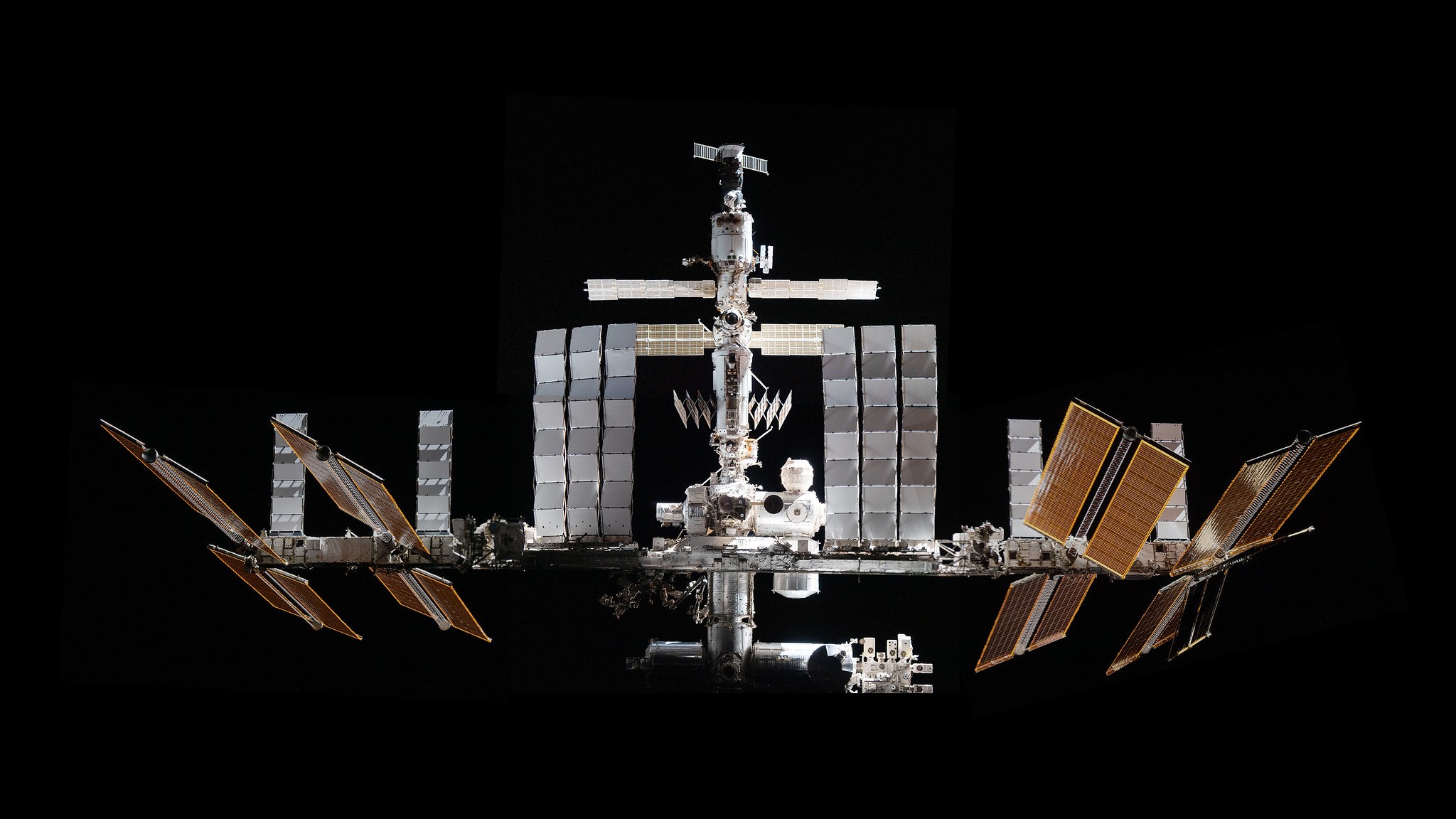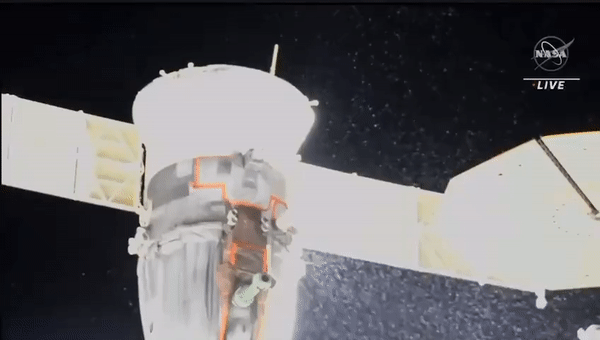Air is leaking from a Russian ISS module, but 'no impact to crew,' NASA says
There's no reason to panic, NASA stresses.

CAPE CANAVERAL, Florida — The International Space Station has sprung a leak.
The space station has a leak at the aft end of the Russian module where the nation's Progress spacecraft dock to the orbital lab, said NASA's International Space Station (ISS) Program Manager Joel Mantalbano during a press briefing on Wednesday (Feb. 28) at NASA's Kennedy Space Center here, which was held to discuss SpaceX's upcoming Crew-8 astronaut mission to the ISS.
"I'd say that area is about three feet [0.9 meters] or so in length," Montalbano said. "Were working with our Russian colleagues on the next step. Not an impact right now on the crew safety or vehicle operations, but something for everybody to be aware of."
The leak has no impact on the Crew-8 mission, Montalbano added, which is scheduled to lift off at 12:04 a.m. EST (0504 GMT) on Friday (March. 1). Watch it live here at Space.com, courtesy of NASA.
Related: 'It's white-knuckle time:' NASA chief stresses safety for Crew-8 astronaut launch
Montalbano added that the leak began increasing in volume roughly one week prior to the Feb. 14 launch of a Progress resupply vessel to the space station. This isn't the first time that leaks in the same part of the Russian service module have had to be repaired.
Leaks from Russian hardware have plagued the ISS in recent months. A dramatic incident occurred in December 2022 when a Soyuz MS-22 spacecraft began rapidly venting coolant into space shortly before a scheduled Russian spacewalk, which was promptly cancelled.
Breaking space news, the latest updates on rocket launches, skywatching events and more!
With few other options and not enough lifeboats, the Russian space agency sent up an empty replacement Soyuz, a vehicle called MS-23, and brought the leaky spacecraft home back to Earth empty for analysis.
Three astronauts spent 12 months on the ISS instead of the planned six while the replacement spacecraft was sent up. NASA astronaut Frank Rubio ended up spending 371 days on the lab due to the leak and delays in getting a replacement sent up, setting a new American record for longest continuous spaceflight.
Then, in February 2023, another Russian cargo spacecraft (Progress 82) sprang an ammonia leak while docked at the space station. Another leak happened seven months later, this time in the Russian Nauka Multipurpose Laboratory Module.
Experts say Russia's war on Ukraine has caused lasting damage to cooperation in space between Russia and its international partners. Shortly after the invasion, Russia signaled it wants to develop its own space station in low Earth orbit and leave the ISS sometime after 2028.

Brett is curious about emerging aerospace technologies, alternative launch concepts, military space developments and uncrewed aircraft systems. Brett's work has appeared on Scientific American, The War Zone, Popular Science, the History Channel, Science Discovery and more. Brett has degrees from Clemson University and the University of North Carolina at Charlotte. In his free time, Brett enjoys skywatching throughout the dark skies of the Appalachian mountains.

